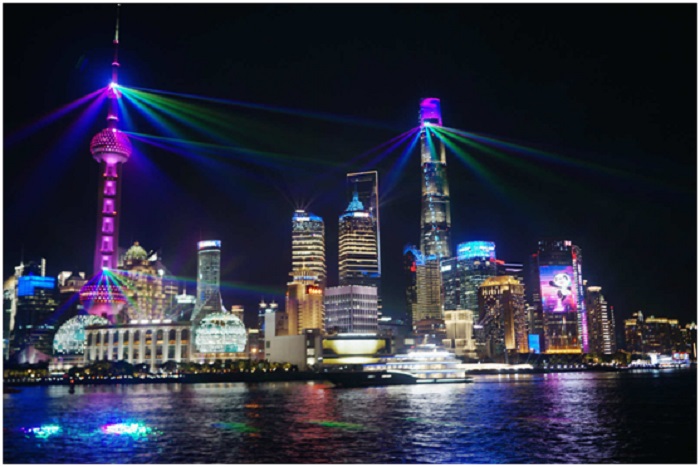



Nine departments and institutions in China announced on Nov. 4 that the country plans to set up 10 demonstration zones to promote imports by creative means, said Li Xingqian, head of the foreign trade department under the Ministry of Commerce (MOC), at the National Exhibition and Convention Center (Shanghai).
The MOC, together with the National Development and Reform Commission, the Ministry of Finance, the People’s Bank of China, the General Administration of Customs, the State Administration for Market Regulation, the State Administration of Foreign Exchange and the National Medical Products Administration, made the announcement of the move ahead of the opening of the third China International Import Expo (CIIE).
The 10 demonstration zones will be set up in Shanghai Hongqiao Central Business District; Jinpu New Area in Dalian, northeast China’s Liaoning province; Kunshan, east China’s Jiangsu province; Yiwu, east China’s Zhejiang province; Hefei Economic and Technological Development Zone, east China’s Anhui province; Huli district, Xiamen, southeast China’s Fujian province; Qingdao West Coast New Area, east China’s Shandong province; Nansha district, Guangzhou, south China’s Guangdong province; Tianfu New Area, southwest China’s Sichuan province; and Xi’an International Trade and Logistics Park in northwest China’s Shaanxi province.
Covering the eastern, central and western regions as well as the old industrial base in northeast China, the demonstration zones include sea, land and air ports, reflecting the impetus and potential of China’s import capability.
In recent years, China has continuously lowered the overall level of tariffs and promoted trade facilitation, achieving positive results in expanding imports.
China boasts a vast domestic market with huge potential, and has a middle-income group comprised of over 400 million people.
Chinese people’s demands for a better life have been constantly raised, and the country’s contribution to the world’s total imports has continued increasing.
Data from the World Trade Organization (WTO) suggest that China’s imports accounted for 11.3 percent of the world’s total in the first half of this year, up 0.8 percentage point year on year from the previous year, hitting a record high.
China’s imports have played a more significant role in stimulating global economic recovery.
The demonstration zones are designed to promote imports, development of relevant industries, and consumption, as well as innovation in trade in such areas as policy, services and models.
Against the backdrop of raging COVID-19 pandemic, sluggish world economy and complex and severe trade situation this year, the Chinese government is still unswervingly facilitating the cultivation of demonstration zones and actively expanding imports, which has fully demonstrated the country’s firm determination to deepen its opening-up and promote trade liberalization, noted Li.
Focusing on a new round of high-level opening-up, the MOC will continue to implement a series of policies and measures to expand imports of advanced technologies, equipment and services, support imports of products related to improving people’s livelihood, encourage efforts to develop new forms of business in the industry, optimize the marketing patterns of imported goods, improve regulatory facilitation, and support the demonstration zones in creating new prospects for the innovative development of imports.


The Executive and members of the.


The Acting Director, FCT Directorate of.


President Bola Ahmed Tinubu has been.



Barely a month after resignation of.


An Abuja based Legal Practitioner, Osuagwu.



Convener of Equitable Remedy, Mrs. Magaret.


Contractors handling the contract for city.


Nigerian government may have concluded plans.


The Diplomatic Correspondents Association of Nigeria.


A rights group, “Follow Me Talk.
Leave a Comment